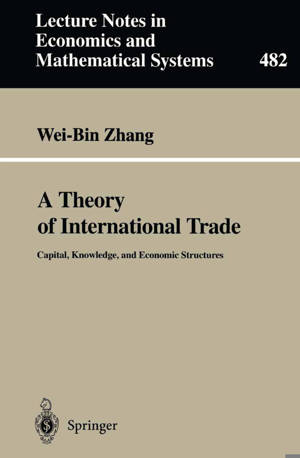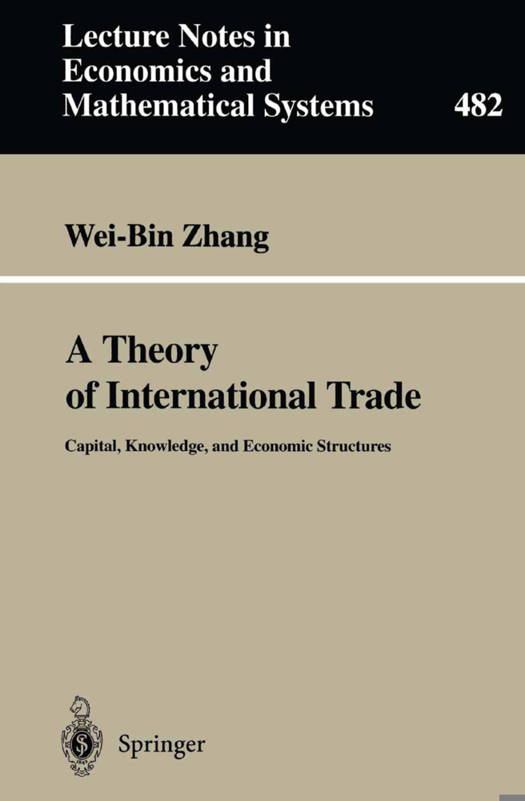
- Afhalen na 1 uur in een winkel met voorraad
- Gratis thuislevering in België vanaf € 30
- Ruim aanbod met 7 miljoen producten
- Afhalen na 1 uur in een winkel met voorraad
- Gratis thuislevering in België vanaf € 30
- Ruim aanbod met 7 miljoen producten
Zoeken
€ 52,95
+ 105 punten
Omschrijving
Over more than two centuries the development ofeconomic theory has created a wide array of different concepts, theories, and insights. My recent book Capital and Knowledge (Zhang, 1999a) shows how separate economic theories such as the Marxian economics, the Keynesian economics, the general equilibrium theory, and the neoclassical growth theory can be examined within a single theoretical framework. The Capital and Knowledge constructs an economic theory to account for the phenomena explained by the main economic theories (of national economies) in a unified manner. It tries to draw together the disparate branches of economics into a single organized system ofknowledge. This book is a part of my economic theory with endogenous population, capital, knowledge, preferences, sexual division of labor and consumption, institutions, economic structures and exchange values over time and space (Zhang, 1996a). As an extension of the Capital and Knowledge, which is focused on the dynamics of national economies, this book is to construct a theory of international trade. We are concerned with dynamic relations between international division of labor, division of consumption and determination of prices structure in global economy. We examine dynamic interdependence between capital accumulation, knowledge creation and utilization, economic growth, price structures and international trade patterns under free competition. Our theory is constructed on the basis of a few concepts within a compact framework.
Specificaties
Betrokkenen
- Auteur(s):
- Uitgeverij:
Inhoud
- Aantal bladzijden:
- 192
- Taal:
- Engels
- Reeks:
- Reeksnummer:
- nr. 482
Eigenschappen
- Productcode (EAN):
- 9783540669173
- Verschijningsdatum:
- 6/03/2000
- Uitvoering:
- Paperback
- Formaat:
- Trade paperback (VS)
- Afmetingen:
- 156 mm x 234 mm
- Gewicht:
- 303 g

Alleen bij Standaard Boekhandel
+ 105 punten op je klantenkaart van Standaard Boekhandel
Beoordelingen
We publiceren alleen reviews die voldoen aan de voorwaarden voor reviews. Bekijk onze voorwaarden voor reviews.











